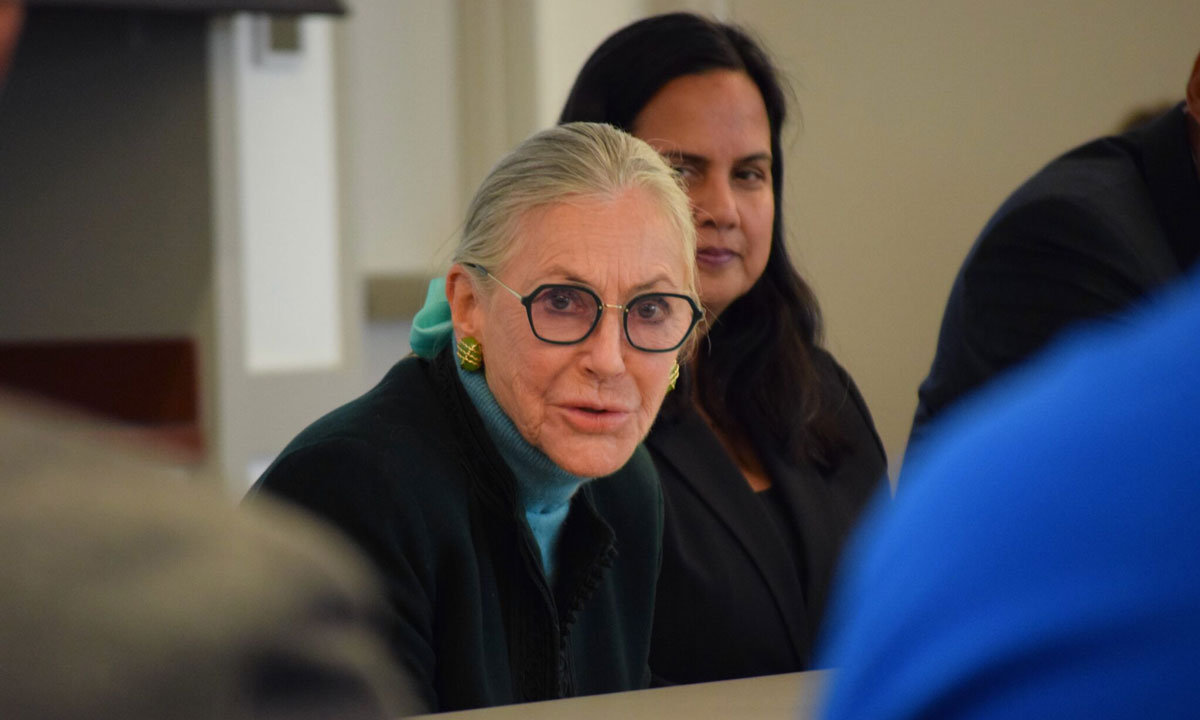NW Arkansas medical school, institute aim for transformative health care model
Northwest Arkansas is losing $950 million annually as residents seek medical care elsewhere.

Get stories like this delivered straight to your inbox. Sign up for The 74 Newsletter
Northwest Arkansas officials hope a new medical school and institute being developed beside Crystal Bridges will solve a host of health care industry problems in a manner that can be replicated.
The Arkansas Legislature’s Joint Committee on Public Health, Welfare and Labor convened Wednesday inside Bentonville’s Crystal Bridges Museum of American Art, which will share its 120-acre campus with two health-focused facilities currently under construction — a nonprofit organization called the Whole Health Institute and its sister organization the Alice L. Walton School of Medicine.
The museum and the two new projects are backed by Walmart heiress Alice Walton, who described herself Wednesday as “the chief cheerleader for transformative health care.” Walton said she has “a close and not symbiotic relationship with health care” as a result of a 12-year chronic condition and multiple surgeries.
Her latest venture was inspired, in part, by a 2019 Northwest Arkansas Council report that showed the region is losing $950 million annually as residents seek medical care elsewhere. That statistic “really got my wheels spinning,” Walton said.
“Arkansas is not a wealthy state,” she said. “We cannot afford to export a billion dollars in medical services elsewhere. Never mind the impact it has on families.”
From the report, Walton said officials developed three pillars towards creating a transformative health care model:
- Training more doctors, and differently, so they focus on keeping people healthy.
- Transforming and realigning the health care payment structure so doctors are rewarded for keeping people healthy.
- Figuring out how to get that $1 billion back into Arkansas.
Walton said she also wants to address the rural health care crisis and believes that can be addressed through increased broadband access that will allow for virtual care that can support the few rural doctors the state does have.
Construction is underway on both the institute and medical school, which are expected to open in 2024 and 2025, respectively. The 154,000 square-foot medical school will integrate the arts, humanities and whole health principles with traditional medical education, officials said.
The school is working through the accreditation process and was recently granted candidate status. Founding Dean and CEO Dr. Sharmila Makhija said the next step is a site visit in about six months. The medical school will then be able to recruit students for the fall of 2025.
The inaugural class will have 48 students, and the school will receive full accreditation once they graduate. Enrollment will likely double at the point, but that will be the maximum amount the school can support, Makhija said.
The creation of the school addresses a recommendation in the 2019 NWA Council report to expand medical education either through growth at the existing University of Arkansas for Medical Sciences Northwest program or the development of an independent medical school.
The report also recommended the addition of 6,000 health care jobs and 200 residency positions.

The Arkansas Legislative Council responded in June 2021 by approving nearly $12.5 million to support an initiative by UAMS Northwest and Washington Regional Medical Center to establish up to 92 graduate medical positions by 2030. The first residents arrived this summer.
Increasing medical education opportunities could increase in-state health-care providers because students are more likely to work in the communities where they completed their residency, according to a recent study. A report from the Association of American Medical Colleges found that 57% of individuals who completed residency training from 2011 through 2020 are practicing in the state where they did their residency training.
Arkansas currently has three medical schools — Arkansas College of Osteopathic Medicine in Fort Smith, New York Institute of Technology College of Osteopathic Medicine in Jonesboro and UAMS in Little Rock. UAMS established a regional campus in Fayetteville in 2007.
With regard to realigning the health care payment structure, Walter Harris, Whole Health Institute President and CEO, said it’s currently volume based. Instead, doctors should be incentivized to keep patients healthy.
“It’s not about the number of patients you see, it’s seeing the patients for the right reasons at the right time at the right places…so it’s a different kind of model,” Harris said.
Transforming health care will require a combination of bringing in specialty care and having an institute that can work with the medical school and all local providers, Walton said.
“We want to involve every health care system,” she said. “This isn’t about winners and losers. It’s about how do we connect and make us all better. And so that’s what we’re trying to figure out and what I’ve figured out is it’s not very easy, but I’m stubborn, so we will continue.”
Arkansas Advocate is part of States Newsroom, a network of news bureaus supported by grants and a coalition of donors as a 501c(3) public charity. Arkansas Advocate maintains editorial independence. Contact Editor Sonny Albarado for questions: [email protected]. Follow Arkansas Advocate on Facebook and Twitter.
Get stories like these delivered straight to your inbox. Sign up for The 74 Newsletter

;)